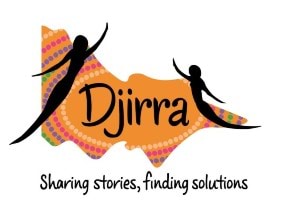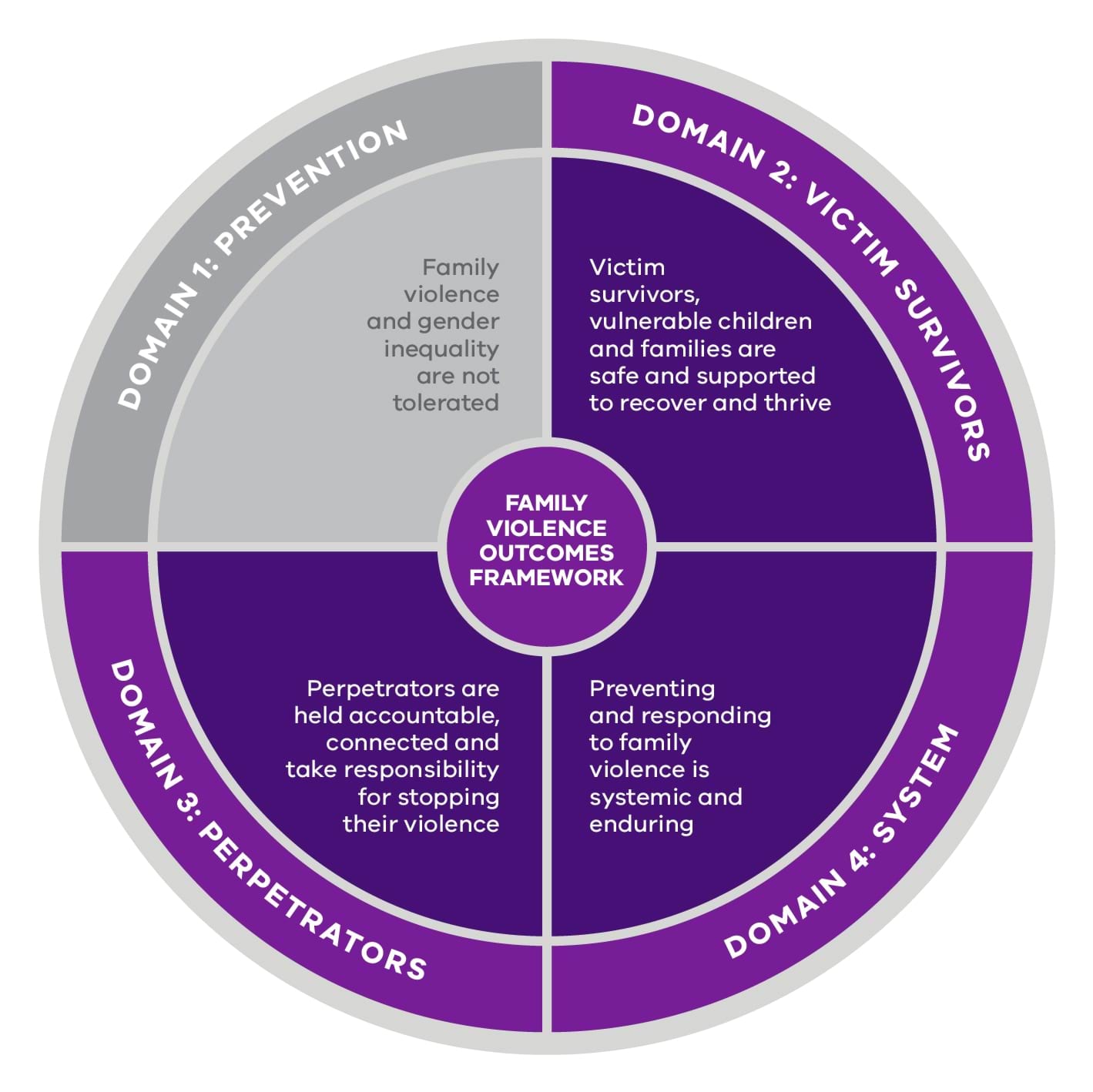Building momentum
Legal assistance for both victim survivors and perpetrators is an integral part of the family violence service system. It is both a source of advice on legal matters and a gateway to other support services.
Victim survivors need information about their legal options to support decisions about their family and safety needs and to advocate for their access to justice.
Legal assistance also helps perpetrators to understand police and court processes and to meet obligations associated with court outcomes, such as adhering to any court orders and conditions, including attending men’s behaviour change programs.
Legal assistance is integral to supporting better outcomes for children and young people who are experiencing family violence at home.
We are committed to ensuring that family violence legal assistance is effectively embedded and integrated across the family violence system.
The Royal Commission into Family Violence found that unequal access to legal assistance was facilitating perpetrators to abuse and exert control over victim survivors.
It has commonly forced victim survivors to deplete their financial resources to access legal representation.
The Legal Assistance reform priority is intended to address inequity to ensure that the justice system is accessible and effective for all.
The first phase of the reform has been focused on establishing strong foundations in the legal assistance sector by increasing access to legal support services, building a specialist workforce and ensuring there is a specific focus on Aboriginal Justice through dedicated funding for Djirra and the Victorian Aboriginal Legal Service.
The family violence reform is ongoing and further work is required to strengthen the integration of the legal assistance sector with the broader family violence service system.
Our priorities are:
- strengthening connections between legal services and the specialist family violence sector, including The Orange Door network
- increasing access, including to culturally safe legal services by investing in legal assistance for at-risk groups
- supporting the family violence, justice and legal assistance sectors through workforce initiatives to better identify and respond to client risks and needs
- working with the Commonwealth to embed family violence competency within professional development frameworks for legal practitioners
We have heard that several issues require further examination and consultation, including:
- access to justice barriers
- perpetrators’ exploitation of legal processes
- stronger pathways between legal and related supports
We are committed to addressing these issues through ongoing engagement with the legal assistance sector. This will ensure that the family violence service system continues to evolve to meet the needs of victim survivors and keep perpetrators in view.
Progress since 2016
Actions since the Royal Commission to improve access to legal assistance are grouped here into three areas.
Delivery to 2023
Legal assistance activities for the next three years builds on base funding and has a focus on early intervention, workforce capacity, service integration and responding to the impact of COVID-19.
This overview of our planned legal assistance activities to 2023 is grouped into five areas.
Connecting legal assistance across the reform
The reforms to increase access to legal assistance for family violence victim survivors and people who use violence connects and supports activities across the family violence reform. For example:
- the continued rollout of The Orange Door network will consider how legal assistance can be best embedded
- embedding a client-focused approach to developing the Specialist Family Violence Courts legal practice model
- strengthening knowledge of legal responses across other workforces which intersect with family violence
Reform-wide priorities
Activities to increase access to legal assistance continue to be informed by our reform-wide priorities: intersectionality, lived experience and Aboriginal self-determination.
At-risk and vulnerable groups are disproportionately affected by inadequate access to legal assistance. Activities outlined below will assist in improving access and services.
Intersectionality
Victoria Legal Aid and Community Legal Centres around Victoria are continuing to adapt and provide nuanced support for the communities they service. For example:
- Victoria Legal Aid is working with culturally specific services to identify the training and resources needed so their legal services are culturally safe environments.
- Victoria Legal Aid provides free access to interpreter services and information about their services in more than 20 languages.
- St Kilda Legal Service and Fitzroy Legal Service provide a free community legal service to assist LGBTIQ+ Victorians with their legal needs.
- Senior Rights Victoria, funded by the Department of Families, Fairness and Housing and Victorian Legal Aid provides a free, confidential helpline for advocacy and legal assistance.
- Brimbank Melton Community Legal Centre runs the Vietnamese Lawyer Project in partnership with the Vietnamese Women’s Association to deliver legal assistance in the Vietnamese language
Aboriginal self-determination
Consistent with our commitment to Aboriginal self-determination, our legal assistance activities include Aboriginal-led, culturally appropriate options for Aboriginal Victorians.
Lived experience
Embedding lived experience is a key feature of the legal practice model at specialist family violence courts and in the future design and delivery of legal assistance programs and services.
Victoria Legal Aid - client-centred approach to legal practice model
Victoria Legal Aid is working with clients, staff, community legal centres, Aboriginal legal services, the courts, police and family violence services to design and deliver the legal services at five of Victoria's specialist family violence courts.
Actions include:
- exploring clients’ experience of family violence legal services in a court setting at two specialist family violence courts
- developing client stories and journey maps through interviews and discussions with clients about their experience
- holding workshops about the justice response with people with lived experience of family violence
- facilitating one-on-one consultations with people with lived experience
This approach will help the specialist family violence courts to offer a more therapeutic model of justice that promotes safety and accountability, while giving people intensive and integrated support.
Measuring outcomes
Family Violence Outcomes Framework
Delivering the activities for this priority area will likely have the greatest impact in achieving outcomes against the following domains:
Royal Commission recommendations
The Victorian Government has committed to implement all 227 recommendations from the Royal Commission into Family Violence.
Of the recommendations still in progress, four relate to legal assistance.
Summary of activities to 2023
Updated

